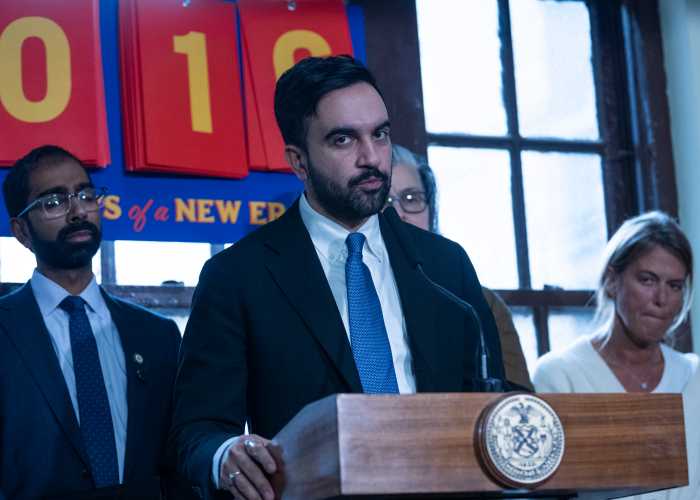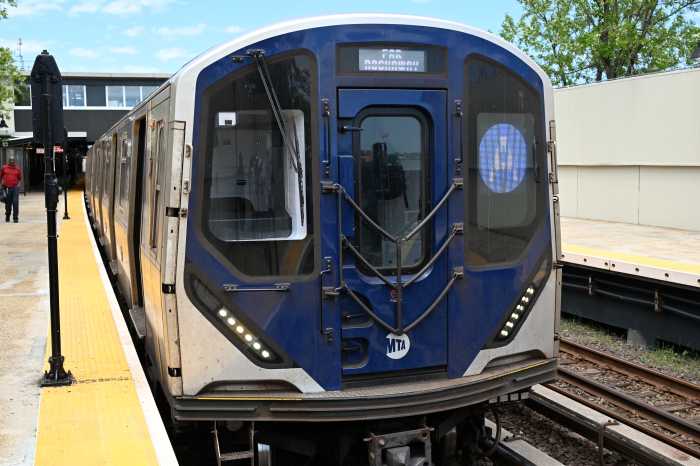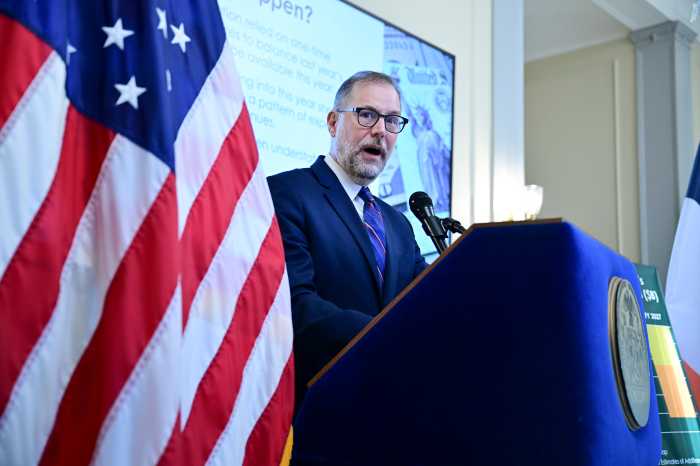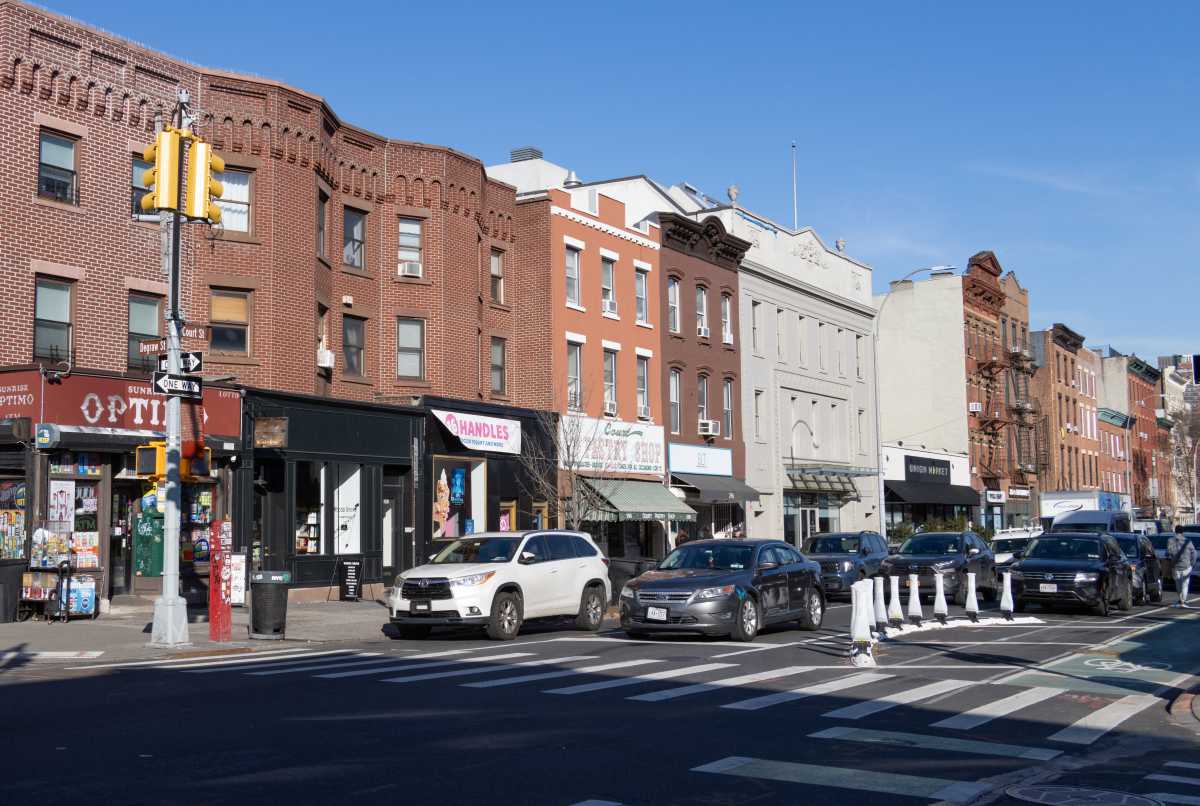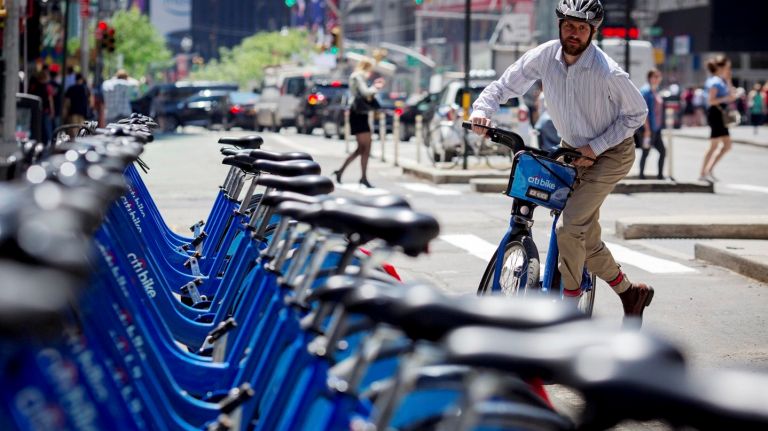
The Bronx and Staten Island might finally get Citi Bike.
Citi Bike has proposed a five-borough expansion plan that would avoid the use of taxpayer money, according to several officials involved in the negotiations.
Motivate, operator of the bike share company, believes it can add 6,000 new bikes to its network. About 4,000 of those bikes would be distributed to new docks in the Bronx and Staten Island, the remaining two boroughs without Citi Bike service, and other unserved areas.
To make that possible, Motivate is asking the city to grant Citi Bike the exclusive rights to operate bike share service in New York City. The de Blasio administration would also have to lift certain regulations on the service, like meeting certain performance measurements and fees that make up for docks blocking metered parking. The administration would have to loosen pricing models and advertisement restrictions at docks.
Elected officials and residents have been pushing the city to expand Citi Bike into the Bronx and Staten Island, with some locals launching online petitions for the cause.
Transit advocates and elected officials at the City Council further pressed Motivate to fill the gaps, but Motivate had expressed that, under current operations, it wouldn’t be financially feasible without taxpayer funding. At the same time, several startup companies offering low-cost, “dock-less” bike share service, where users can lock and unlock bikes wherever they please, have expressed interest in expanding to New York. Critics are skeptical about the quality of those bike shares.
As Motivate and the city discuss options, Polly Trottenberg, the commissioner of the city’s Department of Transportation, said on Wednesday that she was interested in a five-borough Citi Bike expansion requiring as little public funding as possible. But she also noted potential merits of easier access in dock-less technology, where bike share users can lock and unlock bikes through mobile apps.
“We want to commit to . . . a five borough system,” said Trottenberg at a City Council hearing. “We want to do it in a way that is going to be safe and efficient. We want to minimize taxpayer investment to the extent that we can.”
She added that she’d like to see if Motivate could nimbly incorporate elements of dock-less service technology.
“There’s a whole emerging set off players in the bike share field . . . which potentially offer a model that is more low-cost,” Trottenberg continued. “So I think we’re having discussions with Motivate on those new technologies and what they think they might be able to do.”
Citi Bike is the largest bike share in the nation, with a record of nearly 14 million trips in 2016 as it wraps up its expansion into Queens, goes deeper into Brooklyn and extends farther uptown in Manhattan. The company is expected to reach 12,000 bikes and more than 700 stations by the end of 2017.
“We are committed to the goal shared by the Mayor, Borough Presidents and City Council of expanding Citi Bike to all five boroughs,” said Dani Simons, a spokeswoman for Citi Bike, in a statement. “We are flexible in how to achieve it, including finding a sustainable way forward without public funding.”
Caroline Samponaro, deputy director at Transportation Alternatives, believes that Citi Bike has proved itself and said that a privately-funded expansion should be seized upon.
“I see that as an opportunity we shouldn’t miss as a city,” she said, adding that she’s fine with the city concessions — as long as enough checks and balances remain in place. “These tweaks can happen and New York can still maintain enough control to make sure that quality is maintained.”



